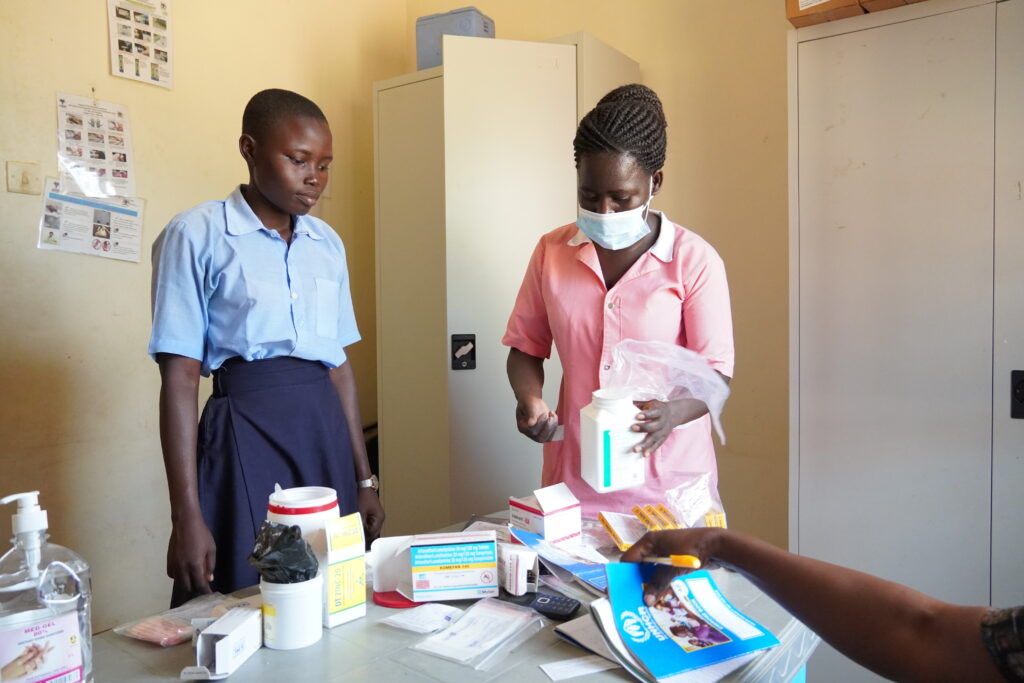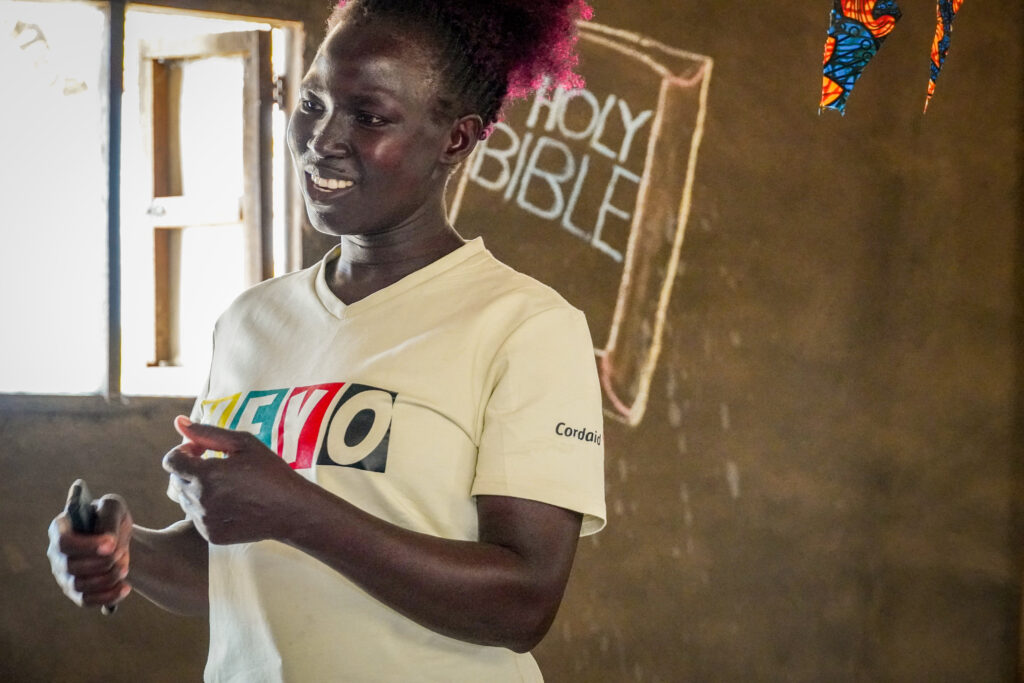At the Bidibidi refugee settlement in northern Uganda, deep-rooted barriers to sexual and reproductive health persist. For many young people living there, access to accurate information, essential health services, and a basic understanding of their rights remains out of reach. Cordaid Uganda’s HEYO project turns the tide.

These challenges are most apparent in places like the Ukubani Health Centre. The centre serves over 16,000 people, many of whom have fled violence in neighbouring South Sudan. The area’s fragile healthcare system is stretched thin, and stigma surrounding sexual health only adds to the difficulties.
‘Refugees often face even greater struggles than host communities,’ said a representative from the local refugee council. ‘They are more likely to experience complications during pregnancy, suffer from sexually transmitted infections, or face sexual violence.’
A Worrying Reality
In 2023, Ukubani Health Centre reported that 23% of teenage girls in its care were pregnant. The number highlights a worrying reality: most women of childbearing age are not using modern contraceptives, and young people often lack the knowledge or support to make informed decisions.
‘Only 18% of women in our catchment area were using modern contraceptives,’ said Amatre Pontious, the health officer in charge at Ukubani. ‘We realised there were serious gaps in education, and many adolescents were being influenced by misinformation and cultural pressures.’
‘Before the project started, I didn’t think we had a role to play. Now, I’ve become someone others look to for advice.’
The steady decline in international funding for refugee health programmes is compounding these issues. Healthcare workers frequently report a lack of training, resources, and support to meet the growing needs of young people. According to Pontious, half the population still lacks a complete understanding of their reproductive rights and health options.
Breaking Down Taboos
In response, Cordaid Uganda’s project Healthy Empowered Youth for Better Outcomes (HEYO) is working to turn the tide and has taken a multi-faceted approach to tackling the crisis.
The initiative is breaking down taboos and replacing rumours with facts by creating open dialogues in the community, hosting health education sessions, and supporting awareness campaigns. Crucially, the project is also building local capacity: Four healthcare workers have received specialist training to support adolescents better, and the facility’s youth-friendly services have been revitalised.
These changes are already having a noticeable impact. ‘Through the outreach work and peer-led education, we’ve seen teenage pregnancy drop to 13% in 2024,’ Pontious reported. ‘The number of women using contraceptives has also increased to 31%. It’s a sign that when young people are given knowledge and confidence, they make healthier choices.’
Youth Champions
One of the programme’s key strengths has been involving young people in leading the change. Tembula Kasifa, a 21-year-old volunteer at the health centre, is part of a network of youth champions who support their peers and advocate for their rights.
‘Before the project started, I didn’t think we had a role to play,’ she said. ‘Now, I’ve become someone others look to for advice. It’s empowered me to help others make safer choices and speak up for their needs.’

Lasting Change
Despite the progress, challenges remain. Many young people in refugee communities still face hurdles in accessing the health services they need. But the work offers a glimpse of what’s possible: a model where information, support, and community leadership can bring real, lasting change.
As Uganda continues to host one of the largest refugee populations in the world, initiatives like HEYO—supported by Germany’s development ministry and Gesundes Afrika—demonstrate the power of community-led health programmes. Healthy young people build healthy communities, and when youth are informed and empowered, everyone benefits.